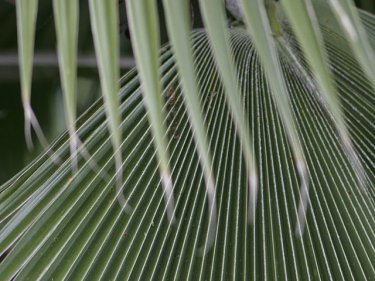PHUKET: The holiday coast north of Phuket is booming with about 1000 additional rooms likely to boost the Khao Lak region's resort stock to about 6000 before 2012.
The burst of activity is mainly down to well-known Phuket brands building on property they've had for some time, waiting for the right moment. And that moment appears to be now.
Among the Phuket marques now moving north are the Kata Group, the Arcadia Group, Graceland, Ocean and Merlin.
Although there have been anecdotal reports that at least one beautiful beach in Greater Phuket is suffering the commercial fate of some of the beaches of Lesser Phuket, the President of the Tourist Association of Phang Nga, Prapud Korpect, says he does not see it growing into a trend.
''People find the Andaman Coast attractive for investment and at the same time the region still has a natural environment,'' he said.
Visitors from Phuket are welcome to check out their northern neighbor during the Phang Nga Carnival, to be held in Khao Lak from December 9-12.
''This region is still popular for quiet beaches,'' Khun Prapud said. Indeed, vendors, food kiosks and jet-skis are forbidden whereas they have overrun some Phuket beaches.
The Europeans who pioneered tourism in Phang Nga's Andaman coast region are in some cases struggling this year to fight their way through Europe's economic downturn.
Resorts are looking to Australians and Japanese to attract new fans, Khun Prapud said.
''Family groups are popular here and there are just a few bars and no go-go places,'' he said. ''We aim to keep it that way.''
The addition of 1000 rooms this year will boost the total accommodation in Phang Nga to 11,000, with the Thai Hotels Association quoted as saying that occupancy is running at 50 percent compared to 70 percent on Phuket and 45 percent in Krabi.
Continued development at the current pace, though, would quickly leave the environmental tourists wondering fairly quickly whether it might be time to move further north to Ranong or further south to Satun and Trang.
The issue of trying to keep Phang Nga and Krabi as the natural ''wings'' for an urban Phuket still has yet to be properly examined by administrators and the region's industry chiefs.
The burst of activity is mainly down to well-known Phuket brands building on property they've had for some time, waiting for the right moment. And that moment appears to be now.
Among the Phuket marques now moving north are the Kata Group, the Arcadia Group, Graceland, Ocean and Merlin.
Although there have been anecdotal reports that at least one beautiful beach in Greater Phuket is suffering the commercial fate of some of the beaches of Lesser Phuket, the President of the Tourist Association of Phang Nga, Prapud Korpect, says he does not see it growing into a trend.
''People find the Andaman Coast attractive for investment and at the same time the region still has a natural environment,'' he said.
Visitors from Phuket are welcome to check out their northern neighbor during the Phang Nga Carnival, to be held in Khao Lak from December 9-12.
''This region is still popular for quiet beaches,'' Khun Prapud said. Indeed, vendors, food kiosks and jet-skis are forbidden whereas they have overrun some Phuket beaches.
The Europeans who pioneered tourism in Phang Nga's Andaman coast region are in some cases struggling this year to fight their way through Europe's economic downturn.
Resorts are looking to Australians and Japanese to attract new fans, Khun Prapud said.
''Family groups are popular here and there are just a few bars and no go-go places,'' he said. ''We aim to keep it that way.''
The addition of 1000 rooms this year will boost the total accommodation in Phang Nga to 11,000, with the Thai Hotels Association quoted as saying that occupancy is running at 50 percent compared to 70 percent on Phuket and 45 percent in Krabi.
Continued development at the current pace, though, would quickly leave the environmental tourists wondering fairly quickly whether it might be time to move further north to Ranong or further south to Satun and Trang.
The issue of trying to keep Phang Nga and Krabi as the natural ''wings'' for an urban Phuket still has yet to be properly examined by administrators and the region's industry chiefs.




